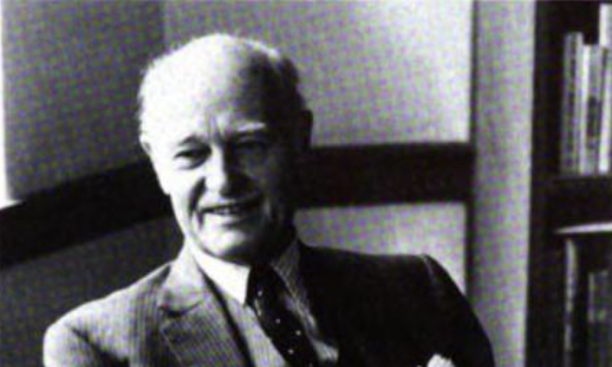
Don Oberdorfer, a former Washington Post diplomatic correspondent, is journalist in residence at the Foreign Policy Institute of the Johns Hopkins University’s Nitze School of Advanced International Studies. A longer version of this review originally appeared in The Washington Post.
In the spring of 1953 a new and ideologically oriented secretary of state, John Foster Dulles ’08, ousted from government the best-known career diplomat of the day, George F. Kennan ’25. Dulles’s act, which was roundly criticized, was a blessing in disguise. Deprived of his original profession, Kennan ventured forth on one of the most prolific and distinguished literary careers of our time.
At a Century’s Ending is the most recent of Kennan’s score of books. It is a collection of previously published articles and reviews, unpublished speeches, a personal letter, and a diary entry. This is not Kennan’s most coherent or important book. But there is much to be learned here about his principal subject, the former Soviet Union and the czarist Russia it inhabited, and about Kennan himself.
A former U.S. ambassador to Moscow, Kennan writes with clarity and insight about the Russians, whom he has known so long and well. In the early Reagan years when the U.S. government jumped to dire conclusions about the imminent threat posed by Soviet power, Kennan objected strenuously. The book contains one of his most notable speeches – a May 1983 Washington address – which described a government report exaggerating Soviet strength as “inexcusably childish.” I was in the audience that day and well recall the riveting sense of concern on hearing Kennan declare that, in part because of American misperceptions, the United States and the Soviet Union appeared to be on a “march toward war.”
As Kennan acknowledges with chagrin at several places in this collection, his own eloquence 50 years ago was somewhat responsible for the U.S. policies he eventually opposed. The perception of a Soviet menace to the United States in the early post-World War II years was greatly advanced by his famous Long Telegram from Moscow in February 1946. In the current volume, Kennan regrets that his powerful dispatch inspired “a strain of emotional and self-righteous anti-Sovietism that in later years I wish I had not aroused.” The impact of the Long Telegram was exceeded by that of his 1946 memorandum to Secretary of Defense James Forrestal ’15, which was the first to advocate “containment” of the Soviet Union. Kennan watched in horror over the years as his words became the touchstone of a policy of military confrontation of which he disapproved.
As this history suggests, Kennan is likely to be remembered more as a man of the pen than as a diplomat or policymaker. He himself has observed that writing, whether as a foreign-service officer, historian, or commentator, has constituted “the backbone of my professional life.” If any further evidence is needed, the current collection attests to his articulateness and narrative skill on a broad range of subjects.
This was originally published in the October 23, 1996 issue of PAW.
